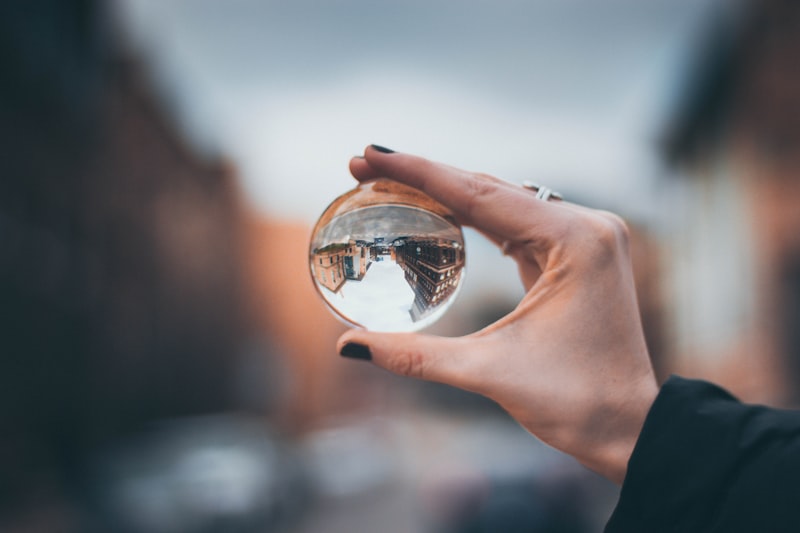- Gender dreams can offer insight into our subconscious desires, fears, and emotions regarding identity.
- Gender dreams may symbolize fluidity and openness to new experiences, a desire for freedom from traditional gender roles, or a search for balance and harmony within oneself.
- Dreams of being a different gender can evoke feelings of discomfort or confusion about one’s gender identity, signaling a need for self-reflection and personal growth.
- Gender dreams can also represent personal transformation, the emergence of new aspects of oneself, and the need to embrace all aspects of one’s identity.
Have you ever had a dream where your gender was different from your waking life? Or perhaps you dreamt of an androgynous creature? Understanding the symbolism and interpretation of gender dreams is vital in helping us gain insight into our innermost desires and fears concerning identity.
Common Dream Scenarios

Dreams can offer valuable insights into our subconscious desires, fears, and emotions. One common type of dream that people experience is a gender dream, where the gender of a person or a baby in the dream is undefined or unclear. These dreams can hold significant meaning and provide valuable insight into our waking lives. Let’s explore some common dream scenarios involving gender and their possible interpretations.
Dreaming of Undefined Gender
In this scenario, the gender of the person or baby in the dream is ambiguous or undefined. This dream may symbolize a sense of fluidity and openness to new experiences. It can represent a desire for freedom from societal expectations and traditional gender roles. The dreamer may be exploring their own gender identity or embracing a more inclusive perspective on gender.
Meeting an Androgynous Creature
Dreaming of encountering an androgynous creature, someone without clearly defined male or female characteristics, can carry deep meaning. It may symbolize a search for balance and harmony within oneself. The dreamer might be seeking a sense of wholeness by integrating both masculine and feminine qualities within themselves. This dream encourages embracing all aspects of one’s identity, regardless of societal norms.
Dreaming of Self as Different Gender
Dreaming of being a different gender than one’s biological sex can evoke various emotions and interpretations. It might indicate feelings of discomfort or confusion about one’s gender identity. The dream can serve as an opportunity for self-reflection and exploration of one’s true self. It may signal an existential crisis or a desire for self-discovery and personal growth.
Giving Birth to an Alien
Dreaming of giving birth to an alien baby can be a powerful symbol related to personal transformation and growth. This dream can signify the emergence of new aspects within oneself that feel unfamiliar or foreign. The alien baby represents the potential for change and adaptation to new circumstances. It can also symbolize the need to nurture and embrace the unknown within oneself.
Meeting a Person of the Opposite Gender
Dreaming of meeting someone of the opposite gender can point to feelings of being unwanted or a lack of important activity in one’s life. It may reflect a desire for connection, understanding, or acceptance from others who possess qualities that the dreamer desires. This dream invites introspection into one’s relationships and longing for deeper connections.
Dreaming of Gender-Specific Baby Items
Dreaming of gender-specific baby items, such as blue or pink layettes, rattles, or cribs, can represent both excitement and anxieties related to pregnancy and parenthood. The dream may reflect hopes and dreams for becoming a parent or grandparent. It can also signify societal expectations and pressures regarding gender roles. This dream provides an opportunity for reflection on personal beliefs and desires beyond traditional gender norms.
Interpretation and Symbolism of Gender Dreams

Gender dreams can hold significant meaning and offer valuable insights into our subconscious thoughts and emotions. These dreams often reflect our desires, fears, and personal growth. In this section, we will explore the interpretation and symbolism of gender dreams, shedding light on different themes and their implications in our waking lives.
1. Personal Growth and Balance
Gender dreams can be a powerful symbol of personal growth and the pursuit of balance in our lives. These dreams often occur during times of transition or when we are exploring our identity and understanding our place in the world. They invite us to reflect on our own development and the need for emotional and spiritual balance.
Symbolism: Ambiguity and Exploration
In gender dreams, the presence of ambiguity is a common symbol. It represents an openness to explore different aspects of ourselves, unconstrained by traditional gender roles or societal expectations. These dreams encourage us to embrace all parts of our identity, including those that may not fit neatly within prescribed categories.
Scene Imagery: Non-Binary Babies and Genderless Bodies
In gender dreams, it is not uncommon to encounter non-binary babies or genderless bodies giving birth. These images symbolize a rejection of traditional binary notions of gender and a celebration of the diversity within ourselves. They invite us to challenge societal norms and embrace a more inclusive understanding of identity.
Emotions: Curiosity, Acceptance, and Self-Reflection
Throughout gender dreams, we may experience a range of emotions. Curiosity is often present, as we seek to understand ourselves and our place within society. Acceptance is another key emotion, as these dreams urge us to embrace all aspects of our identity without judgment or fear. Self-reflection is also inherent in these dreams, encouraging us to explore our beliefs, desires, and values.
2. Challenges and Uncertainties
Gender dreams can also highlight challenges and uncertainties that arise from navigating societal expectations and our own personal journey. They may reveal anxieties or conflicts surrounding gender identity, self-acceptance, and the fear of rejection or misunderstanding.
Symbolism: Fear, Rejection, and Conformity
In some gender dreams, fear and rejection may be present, representing our concerns about being true to ourselves and being accepted by others. These dreams remind us of the challenges we face when attempting to conform to societal norms or when trying to resist the pressure to do so.
Scene Imagery: Gender-Specific Baby Items and Dependent Others
Gender dreams may feature gender-specific baby items, such as blue or pink layettes, which symbolize traditional gender roles. These images remind us of the pressure to conform to societal expectations and the challenges we face when trying to break free from these constraints. Dreams in which someone else reveals the gender of our baby may also reflect a dependence on others for validation or guidance in navigating our own gender identity.
Emotions: Anxiety, Confusion, and Disconnection
Anxiety and confusion are common emotions experienced in gender dreams. These emotions stem from the uncertainties surrounding personal identity, societal expectations, and the desire for acceptance. Dreams may also evoke a sense of disconnection, reflecting the struggle to truly understand oneself or establish a sense of belonging in a world that often imposes rigid gender roles.
3. Positive Changes and Development
Despite the challenges and uncertainties depicted in gender dreams, they can also symbolize positive changes and personal development. These dreams invite us to embrace our authentic selves, pursue self-acceptance, and foster harmony within ourselves and with others.
Symbolism: Authenticity, Growth, and Transformation
In gender dreams that symbolize positive change, authenticity is a key theme. These dreams call us to embrace our true selves and release any inhibitions or fear of judgment. They represent personal growth and transformation as we navigate our unique journey of self-discovery.
Scene Imagery: New Beginnings and Overcoming Obstacles
New beginnings are often depicted in gender dreams through the birth of a baby or the presence of gender-neutral imagery. These images signify a fresh start, full of possibilities and potential. Dreams may also feature scenes where the dreamer overcomes obstacles or challenges related to gender identity, symbolizing inner strength, resilience, and personal triumph.
Emotions: Empowerment, Hope, and Fulfillment
The emotions experienced during positive gender dreams reflect empowerment, hope, and fulfillment. These dreams evoke a sense of confidence, as we embrace our true selves and find joy in our personal growth. They inspire us to pursue our passions, connect with others authentically, and create a life that aligns with our values and aspirations.
Cultural and Religious Perspectives

Gender dreams have different meanings across cultures and religions. Here are some cultural and religious viewpoints on gender dreams:
1. Native American Interpretation
In some Native American cultures, dreams about gender may be seen as a sign of spiritual transformation or the presence of a spiritual guide. The dreamer may experience a sense of connection with the spirit world and feel an urge to explore their spiritual identity.
2. Hindu Understanding of Gender Dreams
In Hinduism, gender may be associated with the balance of masculine and feminine energies within the self and the universe. Dreaming about gender may be interpreted as a reflection of an imbalance of these energies, leading to feelings of confusion and uncertainty.
3. Muslim Take on Gender Dreams
In some Muslim cultures, dreams about gender may be interpreted as a sign of disrespect or disobedience to religious teachings about gender roles. The dreamer may feel guilty or ashamed for having such dreams.
4. Jungian Theory
According to Jungian theory, dreams about gender may reflect the integration of the animus (masculine) and anima (feminine) archetypes within the self. This may lead to a sense of wholeness and balance in life.
5. Freudian Theory
Freudian theory suggests that dreams about gender may represent unresolved conflicts related to sexuality or early childhood experiences. These conflicts may be related to feelings of anxiety, guilt, or shame.
6. Cognitive-Behavioral Theory
Cognitive-behavioral theory suggests that dreams about gender may be a reflection of cognitive schemas or beliefs about gender that influence thoughts, feelings, and behaviors in waking life. By exploring these beliefs, the dreamer may gain insight into their unconscious biases and prejudices.
Psychological and Emotional Analysis

Dreams have long been a subject of fascination and intrigue, offering a window into the subconscious mind and providing insights into our deepest desires, fears, and emotions. When it comes to dreams involving gender, the symbolism and interpretation can be complex and multifaceted. In this section, we will explore various psychological theories and perspectives that shed light on the meaning and significance of gender dreams.
1. Jungian Theory on Gender Dreams
In Jungian psychology, dreams are seen as a reflection of the unconscious mind and contain important messages that can guide us towards self-discovery and personal growth. According to Carl Jung, dreams are a way for the unconscious to communicate important information to the conscious mind.
In the context of gender dreams, Jung believed that they could represent the integration or reconciliation of the anima (the feminine aspect within a man) and animus (the masculine aspect within a woman). These archetypal energies exist within all individuals, regardless of their biological sex, and dreaming of the opposite gender may signify a desire to embrace and integrate these aspects of oneself.
For men who dream of being a woman, it may indicate a need to connect with their nurturing, intuitive, or emotional side. This dream could symbolize a longing for greater emotional depth or a desire to express aspects of femininity that have been culturally suppressed or undervalued. Similarly, women dreaming of being a man might be exploring their assertiveness, independence, or intellectual capabilities.
Gender dreams from a Jungian perspective provide an opportunity to tap into unexplored aspects of the self, embrace one’s wholeness, and achieve greater balance between masculine and feminine energies.
2. Freudian Perspective on Gender Dreams
Sigmund Freud’s psychoanalytic theory offers another lens through which to interpret gender dreams. According to Freud, dreams are reflections of repressed desires, unconscious conflicts, and unresolved experiences from early childhood. From a Freudian perspective, gender dreams may symbolize hidden or unacknowledged sexual desires or anxieties related to one’s gender identity.
Dreaming of being the opposite gender could represent repressed or forbidden sexual impulses and the longing to explore different facets of one’s sexual identity. These dreams might also reveal unconscious conflicts about societal expectations and moral values surrounding gender roles and traditional norms. They could provide insights into the individual’s sexual orientation, identity struggles, or unresolved issues surrounding sexuality and gender.
In addition, Freudian theory suggests that gender dreams may serve as a form of wish fulfillment or fantasy, allowing the dreamer to experience a different gender role and escape societal restrictions or personal inhibitions.
3. Cognitive-Behavioral Theory
Cognitive-behavioral theory takes a more practical approach to dream interpretation. It suggests that dreams are influenced by an individual’s thoughts, beliefs, and emotions. From this perspective, gender dreams can be seen as reflections of personal experiences, social conditioning, and cultural influences.
Gender dreams may reflect personal desires and aspirations related to one’s self-identity and self-expression. They can provide a safe space for exploring different aspects of one’s gender identity, challenging traditional gender roles, or questioning societal expectations.
Moreover, cognitive-behavioral theory posits that dreams often mirror waking life concerns and emotional states. Therefore, gender dreams may arise when individuals are grappling with issues such as gender discrimination, gender dysphoria, body image concerns, or relationship dynamics.
4. Other Perspectives on Gender Dreams
While the above theories provide valuable insights into the symbolism and interpretation of gender dreams, it is important to remember that dreams are highly personal and subjective experiences. Other psychological perspectives, such as humanistic psychology or narrative therapy, may offer additional perspectives on the meaning of gender dreams.
Humanistic psychology emphasizes individual growth, self-actualization, and personal agency. Gender dreams from a humanistic perspective might be seen as an opportunity for self-exploration, uncovering personal values, and aligning one’s behavior with authentic gender expression.
Narrative therapy focuses on the stories we tell ourselves and how these narratives shape our identities. From this perspective, gender dreams could be explored within the context of one’s personal narrative, helping individuals to reframe their relationship with gender-related issues, challenge restrictive societal narratives, and create new empowering narratives that align with their authentic selves.
Conclusion
Gender dreams can hold deep meaning and significance for our personal growth and understanding of ourselves. It’s important to approach these dreams with curiosity and openness, rather than judgement or fear. Whether the dream portrays a desired state of being, confusion, discomfort, or transformation, it offers an opportunity to explore our inner selves in a safe and non-judgmental way. Gender dreams can serve as a tool for personal introspection, healing, and growth. By exploring and understanding these dreams, we can gain deeper insights into our own desires and fears, which can ultimately lead to greater self-awareness and self-acceptance. It’s important to remember that these dreams are personal experiences, and should be interpreted in a way that is meaningful to the dreamer.










Leave a Reply